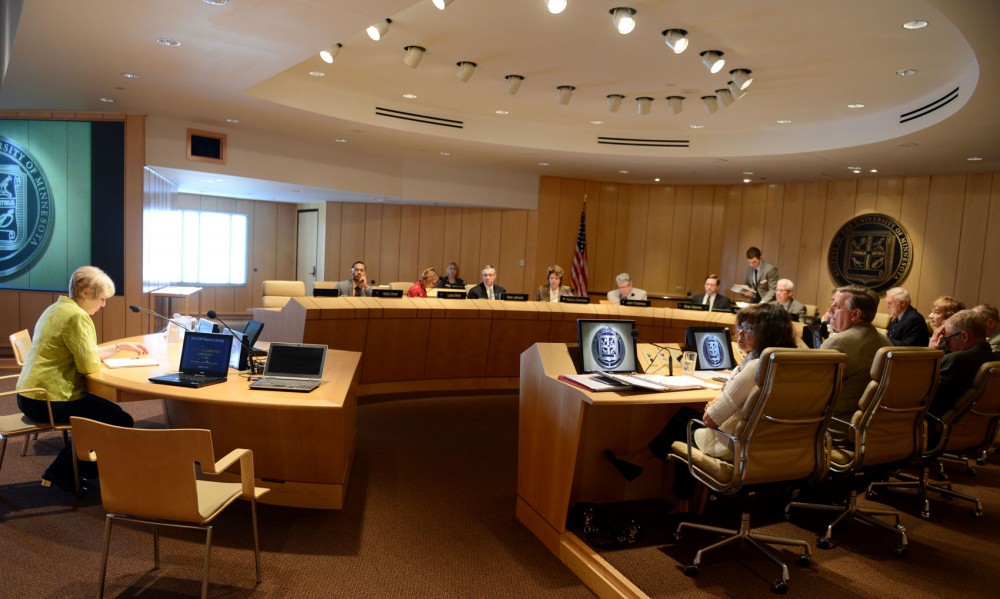At its monthly meeting Friday, the University of Minnesota Board of Regents passed a budget request President Eric Kaler called “ambitious” to improve campus facilities.
The 2014 capital budget request totals nearly $300 million — about $233 million of which would come from the state — to distribute across the University system for improving and building campus buildings after last legislative session left several projects unfunded.
Kaler said he has high expectations going into this session, which is why the University is asking for such a large amount.
In May, Chief Financial Officer Richard Pfutzenreuter said items from the last request would be added to this session’s bonding request.
If approved by the Legislature in February, this year’s request would fund six construction projects around the University’s five campuses.
About $100 million of the state’s contribution would be used for the general upkeep and maintenance of campus buildings, known as Higher Education Asset Preservation and Replacement.
Last year’s HEAPR request was $125 million, and 2012’s was $90 million. Regents said at the meeting that the money is essential because the University is so large.
“$100 million sounds like a very big number, but when you’re dealing with 29 million in square footage, it’s really needed,” Regent Clyde Allen said at the meeting.
Other parts of the request include funding to construct a new Microbial Sciences Research Building, modernize existing labs and renovate the Tate Laboratory of Physics — a proposal that failed last session.
At the meeting, Regent Laura Brod said funding for the labs would improve safety, not just aesthetics.
“This really is a strategic investment for the state for further job creation, further research,” Regent Thomas Devine said at the meeting.
After a bonding bill failed in May, about $110 million in University construction projects was left unfunded. The Legislature passed a smaller bonding bill later but didn’t fund any University projects.
“We’re going to advocate as hard as we possibly can for all that we need,” Kaler said. “These are critical elements for the University, and we’re going to try to build a constituency for all of them.”


